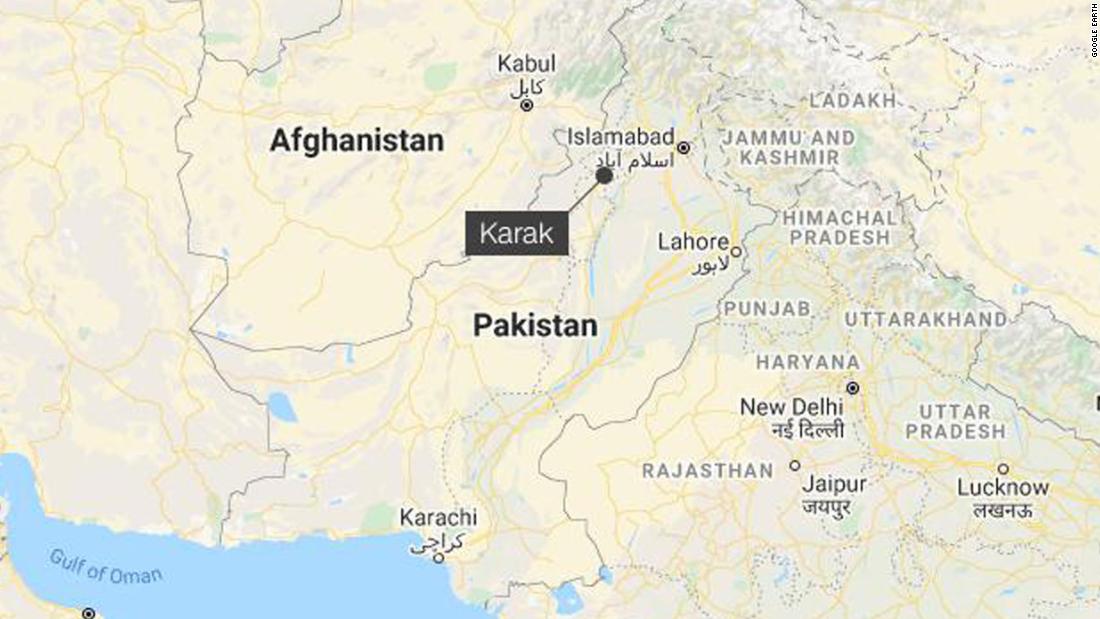
Hindus are the largest non-Muslim religious group in Pakistan, gaining independence from British rule in 1947, when the subcontinent was divided into Muslim-majority Pakistan and Hindu-majority India.
Videos made by locals on the spot and shared with Reuters showed a crowd breaking the blocks of the temple structure walls using stones and mud, while the dark smoke from a large fire rose into the sky.
Local Muslim clerics staged what they told police in a peaceful protest against the alleged expansion of the temple, located in a town in Karak district in northwestern Khyber Pakhtunkhwa province, Rahmatullah Wazir, a city police officer, told Reuters. .
He added that the clergy leading the protest began “provocative speeches”, after which the crowd attacked the temple.
“There was a crowd and then no one was there to stop them from destroying the temple,” Wazir said, adding that most of the structure was damaged.
The head of the district police, Irfanullah Khan, told Reuters that nine people had been arrested on suspicion of taking part in the attack.
The temple was first built in the early 1900s as an altar, but the local Hindu community left in 1947, and by 1997 the site had been taken over by local Muslims.
In 2015, the Supreme Court of Pakistan ordered it to be returned to the Hindu community and the altar rebuilt, provided it is not extended in the future.
The provincial government spokesman did not respond to Reuters’ requests for comment.
“This is a barbaric way of dealing with minorities. We are shocked and hurt … and the incident has sent a wave of insecurity to the Hindu community,” Haroon Sarbdyal, a local Hindu community leader, said in an interview.
Sarbdyal said that while local Hindus moved out of the village, followers still traveled there every Thursday to visit the altar.
Pakistani Human Rights Minister Shireen Mazari condemned the incident on Twitter.
Earlier this year, Amnesty International, the rights watchdog, called on the Pakistani authorities to “protect the right to freedom of religion and belief for the besieged Hindu community in the country, including the construction of temples for the exercise of this right.”